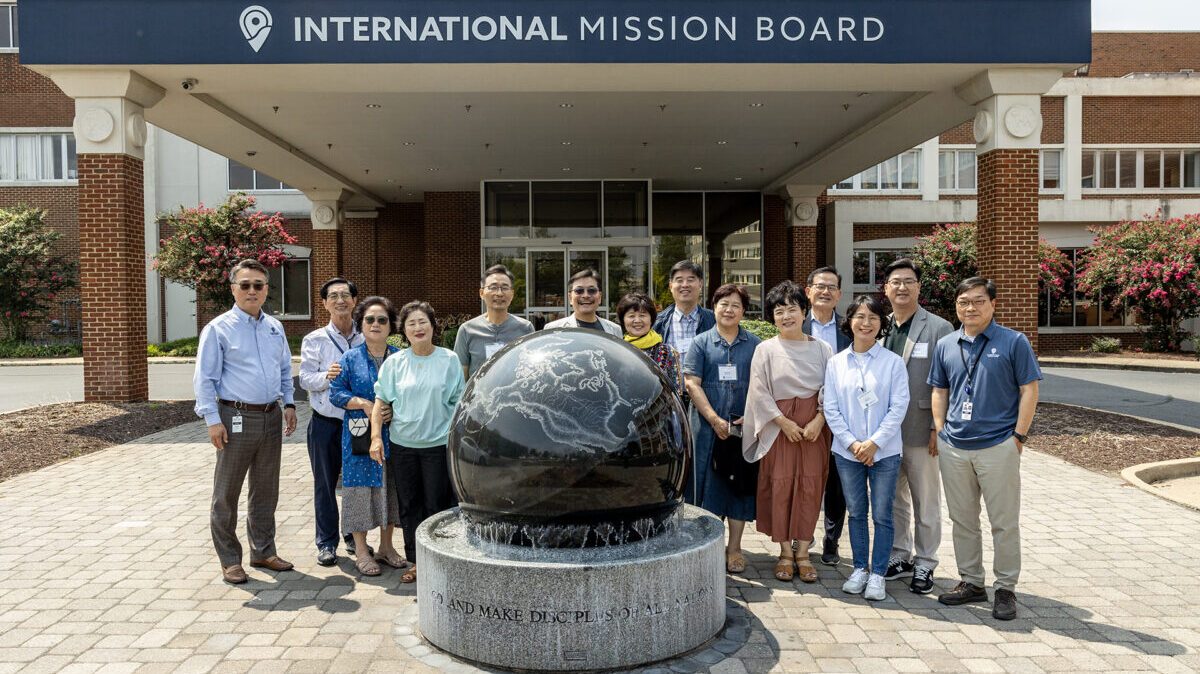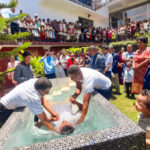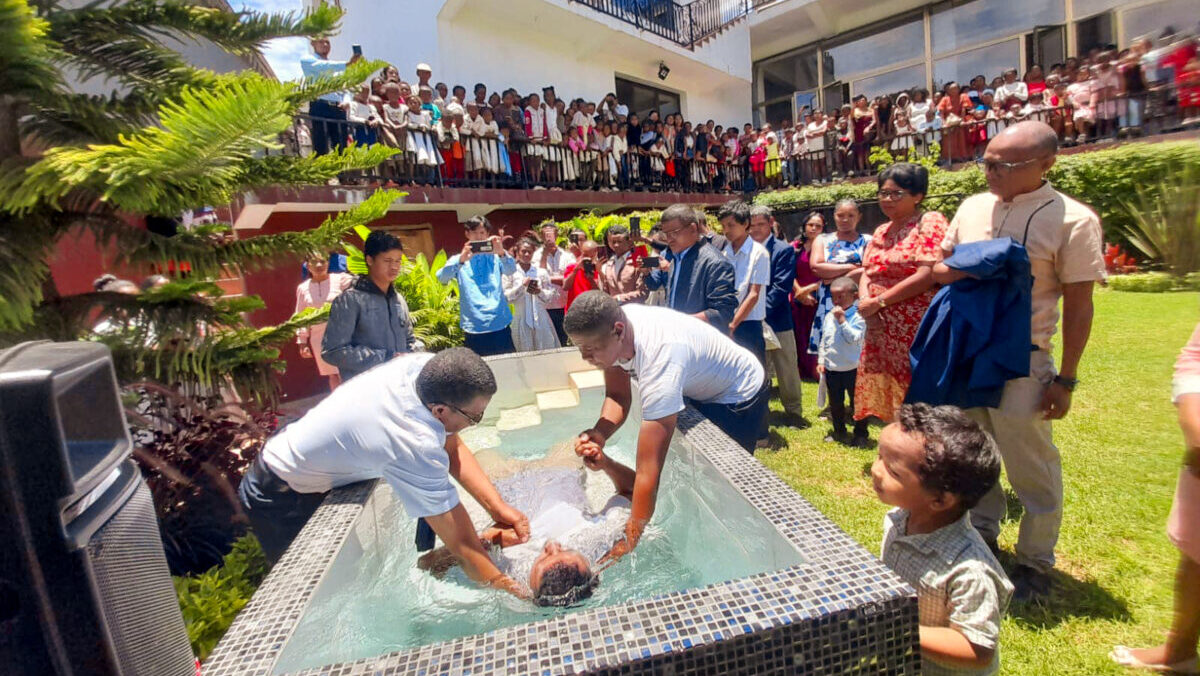IMB staff welcomed 12 representatives of the Korea Foreign Mission Board to their home office in Richmond, Virginia, August 22.
The visit to Richmond was an opportunity for Korean leaders to tour the facility and hear more about current operations and advancements at the International Mission Board. Discussion was built around sharing ideas and learning from each other as the partnership between the two mission boards grows.
The meeting comes on the heels of IMB President Paul Chitwood’s visit to Seoul in July to take part in the Korea Baptist Mission Summit 2023.
The summit in Seoul gathered leaders of the Korea Baptist Convention, the Foreign Mission Board of Korea, the IMB and the Council of Korean Baptist Churches in America.
Learning, reflecting, reaching
Discussions in Seoul and in Richmond included times of learning from each other, reflecting on the strong history of cooperation, and reaching the more than 3,000 people groups around the world who still do not have gospel access.
Min Ho Chu, president of the Korea Foreign Mission Board, said that 35 years ago, Korean Baptist churches were not sending missionaries. He credited IMB missionaries who encouraged them to organize efforts and prioritize reaching the lost outside of their home country for this shift. South Korea is currently the second largest missionary-sending country, only behind the U.S.
Korean Baptists support more than 730 missionaries serving in 60 countries. Most of those missionaries are serving long term and raising their families on the missions field. The Korean FMB has processes for training and sending missionaries, including age-level mission opportunities, short and long-term missions and their own missionary training facility.
Duplicate and strengthen
While in Richmond, they learned how they could duplicate and strengthen areas such as member care, church mobilization, research and deployment.
Amanda Dimperio Davis, IMB’s director of globalization, said these meetings are strengthening partnerships and reflecting the need for cooperative work to reach the lost. Davis explained her role to the visiting Korean Baptists as helping other nations work with the IMB to send and receive missionaries.
Davis described globalization as “working with national partners, helping them to embrace their role in the Great Commission, and seeking to encourage and expand their capacity to send and receive cross-cultural missionaries.”
No one country or agency will be able to fulfill the task alone, Davis emphasized.
She noted that Koreans are setting strong examples for the benefit of globalization.
Thirty of IMB’s 113 Global Missionary Partners have been sent from Korea as Hands On students, Journeymen who serve two- or three-year terms, and long-term missionaries. IMB personnel and Korean leaders have also jointly conducted an Eight Steps Consultation, assessing current approaches to enhance efficiency and effectiveness as they cooperate for the sake of impacting lostness.
IMB is providing teams in other countries to receive Korean foreign missionaries. By being a GMP on an IMB team, the missionaries have the fellowship of the team on the field. They will also receive cross-cultural training that IMB provides and access to logistics services, education consultations and strategies, until the sending organization can provide their own services to their missionaries.
EDITOR’S NOTE — This story was written by Leslie Peacock Caldwell and originally published by the International Mission Board.








